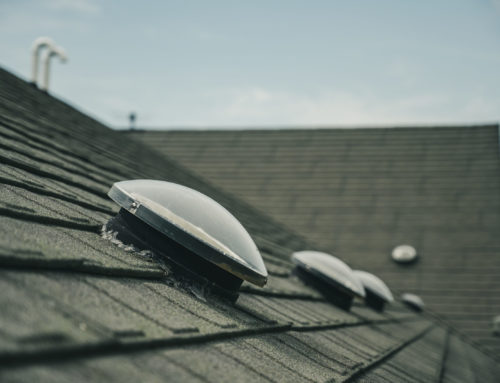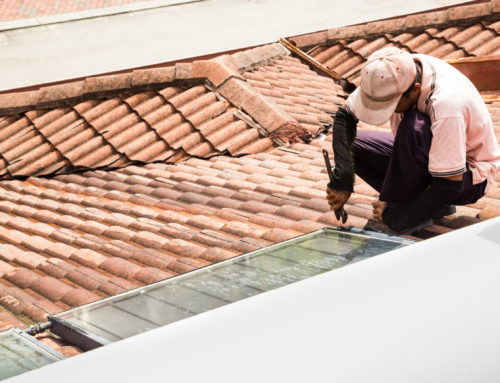Solar Panel Maintenance and Cleaning
Proper solar panel maintenance is key to ensuring you can enjoy the full benefits of a solar energy installation. Keep your renewable energy output high by performing regular maintenance on your solar energy system.
What Kind of Solar Panel Maintenance Do I Need?
Even though they’re sturdy and built with few or no moving parts, the elements can impact the efficiency of solar panels over time. At some point, most types of panels will need to be cleaned or repaired due to debris, falling tree branches, heat, or harsh weather. There are a couple of different kinds of upkeep your panels may need.
You can determine when to service your system by regularly monitoring your system’s production. If you notice a dip from normal output levels, it may be time to clean your panels or check to see if any repairs are needed.
In some parts of the country, solar power panels don’t need to be cleaned. But if you live near a freeway, flight path, or any area where smog, dust, and other airborne particles are common, you could see a dip in your efficiency by as much as 20 percent. Cleaning your panels can easily resolve that.
If your panels are mounted on the ground, you may be able to clean them yourself. Rooftop panels can create added challenges, and you should strongly consider hiring a professional cleaning service if this is the case. Professional solar panel maintenance services employ experts who know how to avoid damaging the wiring, battery, or other solar PV system components on your roof. They’re well trained in handling residential solar panels.
Warranties cover repairs in the vast majority of cases. Typical warranties guarantee panel performance will not fall below a specified output level for a specified term. For example, a manufacturer might ensure that peak power output won’t fall below 85 percent for 20 or 25 years, depending on the warranty length. Secondary warranties can also guarantee an even higher output for the first half of the warranty period.
How do you clean solar panels?
Even a thin layer of dirt and grime can impact your system’s production, so you will need to inspect your installation regularly.
The easiest way to clean your panels is to rinse them off with hose water, simulating the cleaning action of rainwater. This method is free and can remove most of the grime that builds up. In places where little or no rain falls in the summer (such as Arizona, New Mexico, or Texas), this is a viable cleaning option to consider.
There may be times when a simple hosing won’t get the job done. If that’s the case, you have the option of hiring a professional cleaning service or taking a more intensive approach to cleaning the panels on your own.
Should you clean panels on your own or hire a service?
When cleaning panels on your own, never spray hot water on cold panels. Don’t use RainX, car wax, or rock salt, as all of these could permanently damage your system. And never touch any of the electrical components of your system, or you could permanently damage yourself!
Instead, find a solar panel cleaning kit.
Just like solar panel kits, cleaning kits come with everything homeowners need to keep using their panels. These should include soft bristle flow-through brushes, extension poles (up to 18 feet for rooftop cleanings), and solar panel wash/cleaner. These bushes counteract mineral deposits that will dry and become a scale on the surface of your panels. If you have soft water, you shouldn’t have to worry about this.
Costs for kits can run up to several hundred dollars. There are several available online, and a quick search should give you all the information to make a purchasing decision.
A reputable cleaning service will charge between $10 and $20 per panel for cleaning your installation. The size of your system and the number of panels you have will determine the cost.
You may find significant savings if you sign up for a maintenance contract. That will guarantee your system gets cleaned at regular intervals (i.e., quarterly, annually, biannually)
Many people who live in snowy regions often wonder if they need to remove snow from panels after a snowfall. Generally, the answer is no. In most cases, snow and ice melt off panels and roofs reasonably quickly, but for this to happen, your panels need to be at an angle of 15 degrees or more. If production is dipping during the winter, check with your manufacturer to see what they recommend.
How often should I clean my solar panels?
It depends.
You need to regularly visually inspect your panels and also monitor the efficiency of your system’s production. When you notice dirt and grime or a drop off in the amount of system output, it’s time to freshen up your panels.
Depending on your situation, you may also want to schedule a preventative inspection. By having your panels inspected once or twice a year, you can proactively protect against a drop in production and spot repair issues before they become more significant problems. Expect to pay about $100 to $150 for a thorough inspection from a qualified provider.
Can I walk on solar panels?
There are some types of solar panels you can’t walk on under any circumstances. For example, you definitely can’t walk on aluminum-framed glass panels. For other types of construction, a manufacturer may state that you can occasionally step on their panels. Ask your solar installer or manufacturer and read the fine print.
But in general, don’t walk on a solar panel unless you absolutely must. If you walk on a cell and it cracks, the power output will degrade or stop completely. The cracked panel will also be more susceptible to temperature changes that cause thermal expansions and contractions, which can cause materials to pull apart and increase the problem. The longer cracked solar cells go without repair, the less electricity they provide and the harder it is for the solar power system to do its job.
What about protections offered through warranties and insurance?
Before walking on your panels, the other thing to consider is your solar installation warranty. Many warranties include several exclusions, including “damage or failures caused by external factors,” which may be interpreted as purposely or inadvertently breaking a solar panel by stepping on it.
While homeowners insurance policies typically cover solar installations, the policy may only protect against specific risks such as theft, fire, or wind. You should check with your insurance provider to see what they cover in your policy and consider raising your coverage limit. Take steps toward preventative maintenance, so your solar panel system is never damaged in the first place. Your PV system should only have to go through solar panel installation once, after all.
Some providers may require you to add to your policy or start a completely different policy for some installation types. If this is the case, examine the policy directly to make sure it won’t affect the solar array or energy production and that it won’t change who’s responsible for solar maintenance. Whenever possible, allow the professionals to take care of concerns.
How often should I clean my solar panels?
You need to regularly inspect your panels and also monitor the efficiency of your system’s production. When you notice dirt and grime or a drop off in the amount of system output, it’s time to freshen up your panels.
Depending on your situation, you may also want to schedule a preventative inspection. By having your panels inspected once or twice a year, you can proactively protect against a drop in production and spot repair issues before they become more significant problems. Expect to pay about $100 to $150 for a thorough inspection from a qualified provider.
Maintaining a Leased Solar System
One other thing to consider is whether or not you buy or lease a system through a power purchase agreement. If you have a contract with a company that owns the panels on your home, they will be responsible for damage and routine maintenance costs.
A clean system is an efficient system.
Overall, solar panels don’t require much maintenance. They are highly durable, designed, and built to withstand the elements for 20 years or more.
That said, you do need to take care of your panels by cleaning them on a routine basis and repairing all parts of your system as required.


